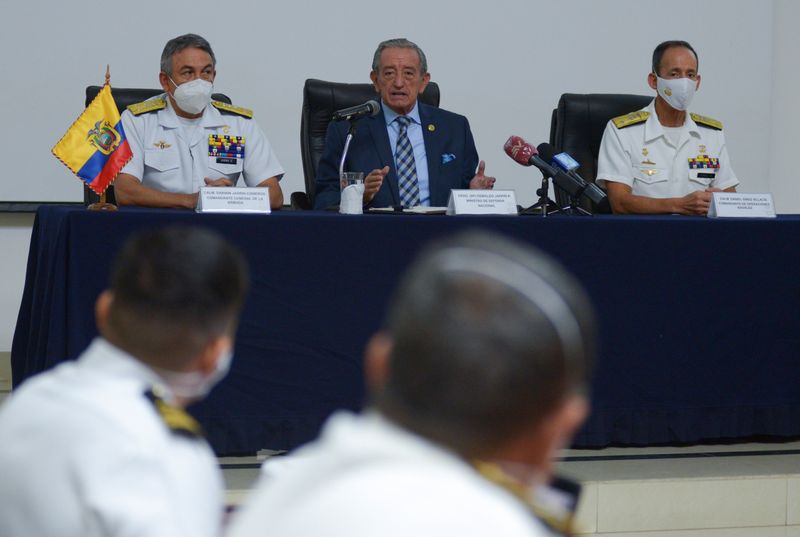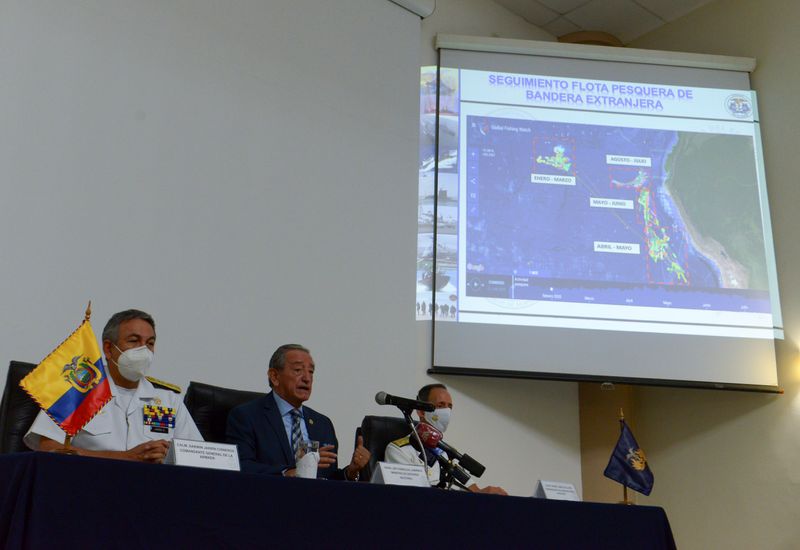GUAYAQUIL, Ecuador (Reuters) – Ecuador’s armed forces said on Tuesday that dozens of vessels from a predominantly Chinese fishing fleet that is operating near the Galapagos Islands have turned off tracking systems to prevent monitoring of their activities.
Of around 325 ships still fishing in the waters near the ecologically sensitive Galapagos, 149 have at some point in recent months cut off communications, Navy Commander, Rear Admiral Darwin Jarrin told reporters.
Some had also changed the vessels’ names to avoid supervision, he said.
“In this period, 149 ships have turned off their satellite systems … we know the name of the ships,” Jarrin said during a press conference. He declined to identify the vessels.
The complaint comes as the South American nation is seeking to prevent unsustainable fishing off its coast while also avoiding a confrontation with China, its largest financier and a major market for its shrimp export business.
A representative of the Chinese embassy declined to comment.
Ecuador says the fleet has not entered its territorial waters. But environmentalists say this type of fishing allows vessels to take advantage of the abundant marine wildlife that travels in the waters between the Galapagos and the mainland.
“It is a breach (of protocol) on the high seas, because they do not want us to know what they are doing and the activities they carry out,” said Defense Minister Oswaldo Jarrin.
He said turning off satellite equipment violated rules created by Regional Fisheries Management Organizations (RFMOs), a group of international agencies that promote sustainable fishing.
The New Zealand-based South Pacific RFMO, which provides guidance on fishing practices in the area said in an email that vessels are required to continuously communicate their position data.
“The fleet you are referring to is being monitored by the SPRFMO Secretariat,” wrote Acting Executive Secretary Craig Loveridge. “China has been forwarding the required information … since midway through 2018.”
Since 2017, the Chinese fishing fleet has arrived in the summer months to the outskirts of the Galapagos protected area, attracted by marine species such as the giant squid or the hammerhead shark, the latter of which is threatened species.
China has promised a “zero tolerance” policy toward illegal fishing, and it has authorized the Andean country to supervise the vessels.
(Reporting by Yuri Garcia, writing by Alexandra Valencia and Brian Ellsworth; Editing by Aurora Ellis)




























